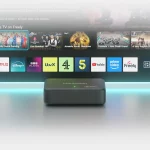Sponsored Links
Study Reveals UK ISP DPI Throttling of BitTorrent P2P File Sharing Internet Traffic
Posted: 26th Oct, 2011 By: MarkJ

 A recent study by Milton Mueller, Professor at the Syracuse University School of Information Studies, which used data collected by Measurement Lab's (M-Lab) server platform that hosts several broadband measurement tools, has given a new insight into the throttling of BitTorrent based P2P file sharing traffic by UK ISPs; especially BT .
A recent study by Milton Mueller, Professor at the Syracuse University School of Information Studies, which used data collected by Measurement Lab's (M-Lab) server platform that hosts several broadband measurement tools, has given a new insight into the throttling of BitTorrent based P2P file sharing traffic by UK ISPs; especially BT .Many UK internet providers use Deep Packet Inspection (DPI) based Traffic Management solutions to balance the congestion on their networks by prioritising the flow of internet data to where it's most needed. DPI works by allowing ISPs to scan Internet traffic in real time and make automated decisions about what to do with it.
For example, an ISP might reduce the speed of popular services, such as BitTorrent (P2P), and then give the extra bandwidth to video streaming like the BBC's iPlayer. This can be detected when consumers run web-tools like Glasnost, which was created by a team at the Max Planck Institute. Mueller used the statistical output from this to examine the percentage of tests that showed some level of BitTorrent Throttling (DPI).
According to Mueller's data, BT and TalkTalk were the most prolific throttlers of P2P traffic. This will not come as much of a surprise because both have Fair Usage Policies (FUP) that state similar restrictions. Note that we have only included data from four UK ISPs as the sample size for others was simply too small to be reliable (Glasnost can sometimes generate false positives).
Rank. ISP NAME - (% of Tests Showing DPI in Q1-2010)It's worth remembering that the degree to which Traffic Management is used can vary depending upon your package type, broadband platform (LLU, BT, cable etc.) and whether or not you're running the test(s) during a peak or off-peak period; throttling is more common during busy periods. This is why some tests, even if the ISP uses DPI, won't always show throttling.
1. BT - (27%)
2. TalkTalk - (12%)
3. O2 - (8%)
4. Virgin Media - (6%)
Milton Mueller's Study
http://dpi.ischool.syr.edu
Search ISP News
Search ISP Listings
Search ISP Reviews
Latest UK ISP News








Cheap BIG ISPs for 100Mbps+
150,000+ Customers | View More ISPs
Cheapest ISPs for 100Mbps+
Modest Availability | View More ISPs
Latest UK ISP News
Helpful ISP Guides and Tips
Sponsored Links
The Top 15 Category Tags
- FTTP (6851)
- BT (3900)
- Politics (3096)
- Business (2792)
- Openreach (2680)
- Building Digital UK (2523)
- Mobile Broadband (2499)
- FTTC (2148)
- Statistics (2145)
- 4G (2114)
- Virgin Media (2040)
- Ofcom Regulation (1790)
- 5G (1756)
- Fibre Optic (1610)
- Wireless Internet (1605)
Sponsored
Copyright © 1999 to Present - ISPreview.co.uk - All Rights Reserved - Terms , Privacy and Cookie Policy , Links , Website Rules






























